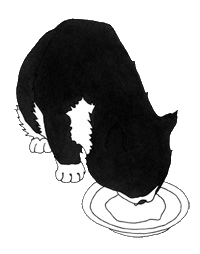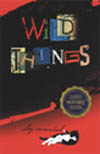
Muses Are Everywhere ~an occasional blog~
Post: March 6, 2013: A Short Meditation on Place / For AWP Conference 2013 Winter storm Saturn (what's with these names?) will sadly keep me from driving north to Boston for the AWP conference this week. I wish my fellow presenters Zu Vincent, Debby Edwardson, and Kelly Bennett well and post my own brief pre-panel* comments here:
“Write what you know,” Howard Nemerov said. “That should leave you with a lot of free time.” Said James Baldwin, “When you’re writing you’re trying to find out something which you don’t know.” And this longer quote from Jim Harrison: “What I hate about this notion of regionalism in literature is that there’s no such thing as regional literature. There might be literature with a pronounced regional flavor, but it’s either literature on aesthetic grounds or it’s not literature. In the view of those on the Eastern Seaboard, everything that is not amorphous, anything that has any peculiarities of geography, is considered regional fiction, whereas if it’s from New York, it’s evidently supposed to be mainstream. [Y]ears ago … it struck me that the Upper East Side of New York was constitutionally the most provincial place I’d ever been.” That I agree with all three of these writers should tell you that I’m more a write-what-you-don’t-know kind of writer and a universalist whose neighborhood happens to be North Carolina. Truth to tell, the term world-builder is a bit academic and high-sounding for me. As a realistic writer, the components of my fictional worlds are already out there fully formed. So what might be more accurate in my case is to say that I’m a writer-illustrator who uses my eyes and ears and all the craft I can muster to render my made-up characters and fictional worlds as best and truly as I can. Both my novel Wild Things and my upcoming novel Brother, Brother are carefully and intentionally set on North Carolina ground, a rich, diverse, much blood-watered and manure-augmented earth. I’ve lived there most of my life, a kind of immersion. And so the steeped tea of North Carolina landscapes, people, diversity, tongues, politics, and weathers permeates my stories.
Character and story are central to my work, everything else in their service, but crucial in my story’s success—in any story’s success—is a vivid world the characters can realistically and convincingly inhabit, a palpable place with believable stink and noise and dirt roads the characters can speed or wander down. But I don’t map out these worlds or places in advance. A novel for me is an adventure, an exploration, an archeological dig. My editor, Nancy, kindly describes the show-up-and-see-what-happens way I create my characters and render their worlds as organic—which is a lot more natural-sounding than my daily process actually is. But my organic approach depends little on what I already know about anything or anybody—which is not much and certainly nothing I care to re-warm for two or three hundred pages. My organic approach has everything to do with all I don’t know, not yet anyway, what I hope to discover on the journey, trek, slog, pilgrimage, excavation, knock-down-drag-out fight of writing a novel-length story. I’ve run the novel-writing marathon twice now. My first time was like digging a rose garden in sun-baked clay. Novels, like roses, want deep soil. Writing the first one was so hard I swore I’d never do it again, and yet I’ve just delivered a second novel, set in a different part of my state. In both books Southern voices drew me into the stories; in both cases, my ears were my truest friends. While I seldom write what I know, I have lived and breathed and most especially listened to North Carolina and North Carolinians for a long time. Listening is invaluable to this writer. It helps me get things right more than anything else, and sometimes delivers dialogue or whole scenes fully formed. Why work any harder than you have to? Once, when I was shopping in a Roses chain store, I heard one clerk shout across the store to another, “Darlene! This lady needs help with some bullets.” Talk about gifts. The cadences of my family and home state are the natural sounds of my life, the longtime music and caterwauling of my nights and days. Though I’m also a visual artist and I’ve illustrated four of my five books, I often hear many of my characters before I see them, and more than a few have voices flavored by the mid-Atlantic South. When I can hear a character’s voice, the work is easier. I may not always know at first what they’ll think or say, but once I know their individual voices, I will know which words they will choose in what order when I finally figure it out. I know by deep listening, conscious and unconscious, usually to a lot of real people for a long time. Now and then, when I’m lucky, a particularly distinctive fictional voice will distill from all that listening. I hear the voice inside my head as clearly as if it were the voice of a real person I love, which if I am successful, that voice becomes. My character Zoë’s Southern voice was like this, along with others, in my first novel Wild Things. This was also true for Kit’s voice, and others, in my novel Brother, Brother. I will tell you a Southern horror story. During the copy edit of Wild Things an over-determined copy editor so changed my main character’s distinctive Southern voice that I no longer recognized it. When Zoë, a fairly well spoken twelve-year-old Southern girl, came back to me sanitized, spouting “whoms” and using the subjective, I actually cried. It took me a grinding two and a half months to put her first-person voice right again. My elementary and middle school student-writers usually try to “see” their characters before they hear them; this often makes for descriptions that are workaday and flat. Years ago, I studied creative writing at the University of North Carolina with South Carolinian Max Steele. Max was full of writing advice, pithy and Southern. “Hen’s lay, people lie,” he’d drawl at some poor sophomore who didn’t know the difference. After reading one too many of our beginner stories, Max once snapped that we were the laziest class he’d ever had, “Stop writing what color your characters’ eyes are! Nobody ever notices that.” It’s true. Test it, and you’ll see. Unless someone’s eyes are lime green, or glow-in-the-dark, eye color’s rarely the first thing you fix on when you meet anyone. Max urged us to write rigorously and precisely, to pass up easy choices, to see and hear what was original and particular. Max also thought writers used their sense of sight promiscuously, and anyone who’s read enough eye colors knows it’s so. The ear is the more faithful, harder working, most trusted tool of this writer. It hears straight off when something is crap. Last year, I read a bestselling young adult dystopian novel, the second in a trilogy. The story was a page-turner and readable enough but every setting seemed flat as painted scenery. I kept thinking: if I walk around this tree, this building, that house, I’ll find two-by-fours holding up a plywood set. It was like one of those movie westerns with a main street only real from the front and seen dead on. When I write with a solid sense of a real place, I have a running start on making my book’s world more believable and immediate, my diner or rest stop or roadside more true to life, my characters more vivid as they fall in and out of love, scheme mayhem or try to scratch each others’ eyes out—but getting back to those quotes at the beginning, this is far from the whole story. In Wild Things I imagined a troubled girl, her sculptor-uncle, a mysterious boy and an albino deer in a North Carolina forest where my main character Zoë could escape, explore, and in time unearth her ancestors’ darkest secrets. In Brother, Brother my seventeen-year-old main character leaves the flat and unproductive red dirt of North Carolina’s Piedmont for an island near the Outer Banks, where he finds himself part of a powerful and manipulative political family. In both cases, regionalism was one means to make the stories vivid, but by grounding them firmly in the particular, my goal was to do something more. In both books I used North Carolina’s natural, cultural and political landscape in specific ways to tell universal stories one might set anywhere, to ask the most common and persistent human questions, to explore the light and darkness inside every human heart. As my college professor Max rightly insisted, the only reason people read novels was that human beings were more alike than they were different. But as every writer discovers, it’s in the red earth of the particular, dug hard and deep, that the universal grows. I’ll leave you with one last quotation from the writer Ron Rash: “…as Southern writers, this is the world you have, and the world you know best. And you write about that, but always with the idea that ultimately if it doesn’t touch what it means to be a human being, if it’s not universal, then it’s not any good.”
Clay Carmichael March 8, 2013 / AWP Conference Session Remarks *World Building When Writing for Children and Young Adults |
Macmillan's ReaLITy website / Pinerest / Reviewers request ARC at Netgalley
Clay's blog main page/ website home/ WINC website

©2013 Clay Carmichael, all rights reserved


